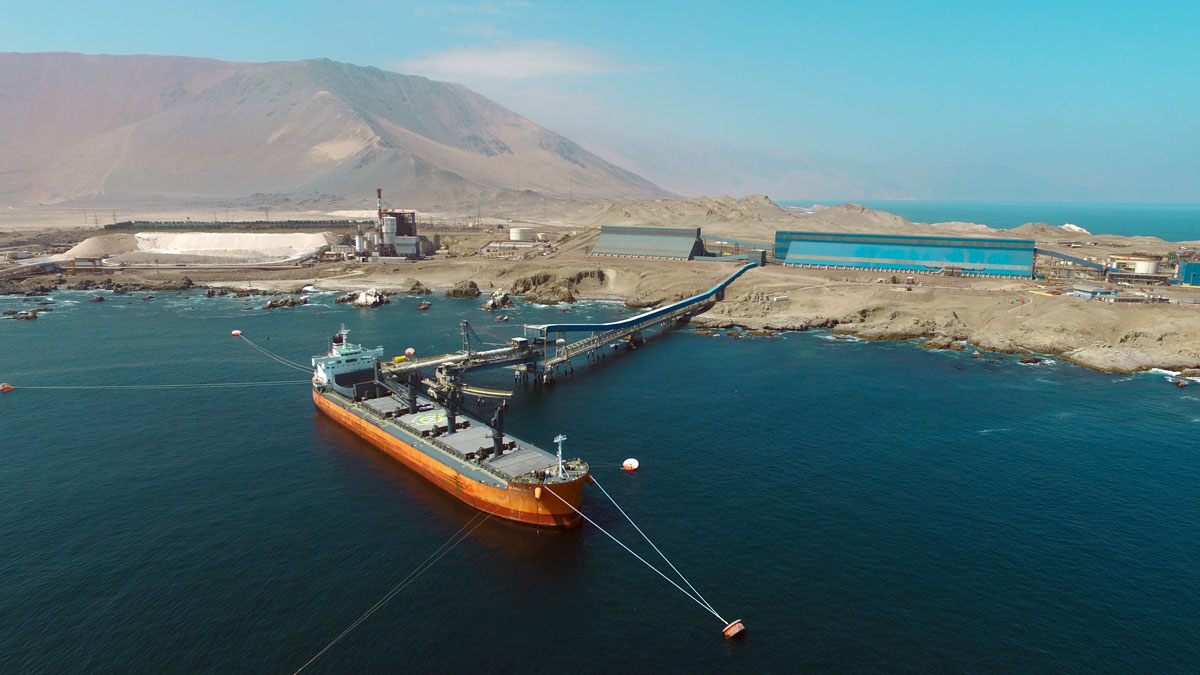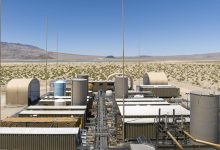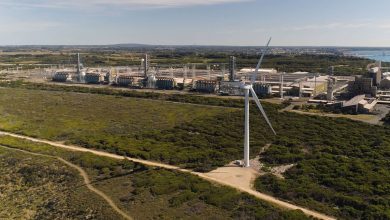Anglo American Aims for Carbon Neutral Shipping and Mining by 2040
Anglo American has set an ambition to achieve carbon neutrality across its controlled ocean freight activities by 2040, with an interim 30% reduction in emissions by 2030. This ambition is aligned with the goals of Anglo American’s Sustainable Mining Plan, which include achieving carbon neutral mining operations by 2040 and an ambition to reduce Scope 3 emissions by 50% by 2040.
“Connecting our customers with the metals and minerals they need in a way that is safe, efficient and sustainable is a key priority for us, so our ambition for carbon neutral controlled ocean freight is a natural extension of our commitment to be carbon neutral across our mining operations by 2040,” Peter Whitcutt, CEO of Anglo American’s Marketing business, said.
“Since establishing our shipping desk in 2012, we have built a diverse portfolio and today we transport more than 70 million tonnes of dry bulk products per year to our customers around the world. We are committed to playing an active role in accelerating the transition to a more sustainable shipping sector, a crucial component in our efforts to extend our positive impact beyond our mine sites. This ambition further cements that commitment and will help us shape a clearer path towards decarbonisation.”
Anglo American has adopted high standards in vessel efficiency across its chartered fleet and is exploring a comprehensive framework of complementary sustainability measures, an approach that will be backed by regular and validated emissions performance reporting. Vessel retrofits, the use of voyage optimisation software, and support for technology development to help enable the switch from conventional fuel oil to sustainable marine fuels are all part of our efforts to decarbonise ocean freight activities.
In 2020, Anglo American announced the introduction of LNG-fuelled Capesize+ vessels to its chartered fleet, taking advantage of LNG’s proven ability to incrementally decarbonise shipping. Anticipated environmental benefits include a c.35% reduction in carbon emissions compared to standard marine fuel, while also using new technology to eliminate the release of unburnt methane, or so-called ‘methane slip’.
Anglo American is participating in industry efforts to accelerate the development of alternative low-carbon and zero-carbon fuels. They conducted a successful trial using sustainable biofuel, converted from waste cooking oil and used to power a chartered Capesize ship, with the aim to operationalise biofuel into their marine fuel mix. Anglo American is also part of an industry consortium looking into the viability of green ammonia.
Recognising the potential of hydrogen in enabling a carbon neutral pathway for ocean freight, Anglo American recently joined forces with Hydrogenious Maritime AS, a joint venture between Hydrogenious LOHC Technologies, a portfolio company of AP Ventures, and Johannes Østensjø dy AS. The two companies will collaborate to explore the use of emission-free liquid organic hydrogen carrier (LOHC)-based applications on Anglo American’s chartered fleet. Anglo American is also exploring opportunities to align its efforts on the development of zero carbon fuel for maritime operations to larger hydrogen supply chains in South Africa and Chile.
Partnering across industry to shape a more sustainable future
Anglo American recently joined more than 200 industry players as a signatory of the Call to Action for Shipping Decarbonisation, calling for decisive government action to enable full decarbonisation of international shipping by 2050.
A partner of the Global Maritime Forum, Anglo American was a founding signatory and an architect of the Sea Cargo Charter – created by some of the world’s largest energy, agriculture, mining, and commodity trading companies. The aim of this group is to establish a standard methodology and reporting framework to allow charterers to measure and align their emissions from ocean transportation activities. Anglo American is also a signatory of the Getting to Zero Coalition, an alliance committed to getting commercially viable deep sea zero emission vessels powered by zero emission fuels into operation by 2030.
Anglo American’s Climate Change Report 2021
On October 29, Anglo American published its Climate Change Report 2021, ahead of its six-monthly sustainability performance update. The update will include Anglo American’s progress towards its target of carbon neutral operations (Scopes 1 & 2) by 2040 and its ambition to reduce its Scope 3 emissions by the same year, 2040.
“We have long understood that our sustainability performance, our financial performance and our ability to deliver attractive returns over the long term are inextricably linked. Our strategic choices position us increasingly to supply many of the metals and minerals that are critical to enabling the technologies society needs to decarbonise energy and transport, but also to cater for the needs of an ever-growing global consumer population. With that responsibility, we recognise that our industry must continue to evolve. Through innovative technologies and practices, we can be more targeted in accessing those metals and minerals, use less water and energy and, crucially, generate fewer GHG emissions. Our FutureSmart Mining™ programme, using technology to transform our safety and sustainability performance, has helped us make significant progress in recent years and we are accelerating our efforts. Building upon our commitment to carbon neutrality across our operations by 2040, we have today set our ambition to reduce our Scope 3 emissions by 50%, also by 2040,” Mark Cutifani, Chief Executive of Anglo American, said.
Scope 3: 50% reduction by 2040
Anglo American has continued to accelerate its decarbonisation initiatives and has added an ambition to reduce its Scope 3 emissions by 50%, also by 2040.
“Whilst we know that this ambition is challenging, the work we have done in the past two years has helped us to understand more fully our own Scope 3 inventory and the levers that we can pull to influence the reduction of those emissions. This work will inform our development and ongoing refinement of our Scope 3 reduction pathway, while recognising that our ability to significantly reduce our Scope 3 emissions is dependent both on the steel sector decarbonising and a supportive global policy environment. Beyond the natural depletion of certain assets in our portfolio by 2040, we are working to reduce emissions in our supply chain and logistics, particularly in shipping, and working with customers and technology partners on low carbon steelmaking technologies. If the decarbonisation of the steel sector accelerates, in part because of the partnerships we are building, this would allow us to go further still,” the report reads.
“Of course, a sustainable business is competitive, resilient and agile – it listens and responds through economic and social cycles – underpinned by non-negotiable values and guided by a clear purpose. We believe that we are doing all the right things to decarbonise our business and to work with partners to help decarbonise our value chains. Where we can accelerate towards our targets and ambitions, we will. Our approach reflects the simple fact that climate change is affecting us all and that navigating the transition is both a shared and urgent endeavour,” Mark Cutifani concluded.







